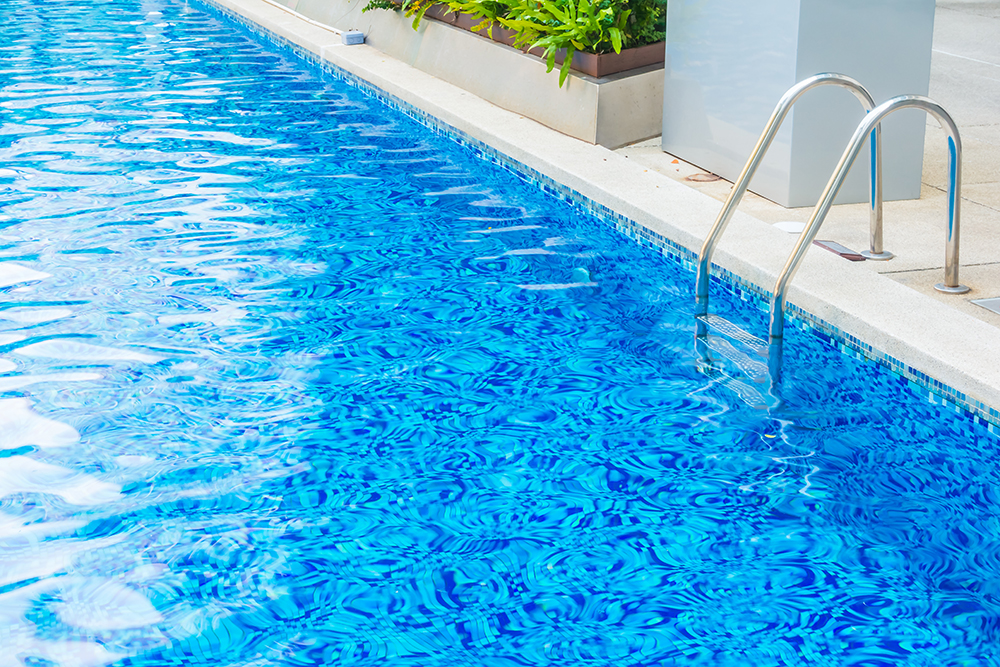
An outdoor pool is a luxury that Florida residents, especially those in Jacksonville, cherish year-round. However, with weather conditions that can swing from sunny and humid to stormy and windy, keeping your pool in perfect shape can be a challenge. Whether it’s the blazing summer sun or unpredictable hurricane season, safeguarding your pool ensures its longevity and keeps it sparkling clean for every swim.
This guide will provide valuable tips on how to protect your pool in various weather conditions, from scorching summers to heavy rains. Stick around for pro tips and discover how professional pool renovation in Jacksonville, FL, could make pool care even easier.
Why Weather Protection Matters for Your Pool
Your pool is a considerable investment, and ignoring proper weather care can lead to costly repairs. Here’s why weather protection is crucial:
- Prevents damage to pool surfaces and equipment. Sun and storms can lead to cracking, staining, or equipment failure.
- Reduces maintenance costs. Regular maintenance along with weather preparedness minimizes long-term expenses.
- Improves water quality. Protection keeps debris out and ensures balanced chemicals.
By understanding how various weather patterns impact your pool, you can plan ahead to keep it in top condition.
Protecting Your Pool During Jacksonville’s Summer Heat
Summers in Jacksonville are known for intense heat and UV exposure. While it’s the best time to enjoy your pool, it also increases maintenance challenges.
How Heat Affects Your Pool
- Water evaporation rates rise, leading to a lower water level.
- UV rays degrade chlorine levels, reducing water sanitization.
- Heat encourages algae growth, turning your pool green.
Summer Protection Tips
- Prevent excessive evaporation. Use a pool cover when not in use. Solar covers reduce evaporation and retain heat.
- Regularly balance water chemistry. Add chlorine stabilizers to protect against chlorine loss caused by sunlight.
- Clean filters more often. Increased debris can clog filters during summer. Maintain better filtration by cleaning weekly.
- Brush and vacuum regularly. This prevents algae buildup, especially in the corners of your pool.
- Consider UV-protective sealants. Extend the life of pool tiles and deck surfaces with surface coatings that guard against heat damage.
Pro tip: If your tiles are starting to crack from repeated UV exposure, it might be time for a pool renovation in Jacksonville, FL.
Safeguarding Your Pool During Heavy Rain
Rainy seasons often bring storms, flooding, and contaminants that disrupt pool water quality and structure. Preparing for this weather ensures that your pool survives unscathed.
How Rain Affects Your Pool
- Excess water can overflow the pool, flooding surrounding areas.
- Rains dilute the chemical balance, leading to cloudy or unsafe water.
- High winds blow dirt, debris, and leaves into your pool.
Rainy Weather Protection Tips
- Invest in a secure pool cover. A heavy-duty cover keeps debris out and prevents dirt settling during storms.
- Lower the water level before stormy days. Create room for extra rainfall to prevent overflows.
- Do a quick cleanup after a storm. Skim debris from the surface and clean filters to prevent clogs.
- Recheck your chemical levels. Increased water volume affects pH, alkalinity, and chlorine levels. Adjust accordingly.
- Inspect equipment after heavy rain. Ensure your pump, filter, and electrical systems are functioning properly after exposure to excess moisture.
Protecting Your Pool During Cold Spells
While Florida winters are mild compared to other parts of the country, unexpected cold snaps can pose risks to pools. Even in Jacksonville, some pool components are vulnerable to freezing conditions.
How Cold Weather Affects Your Pool
- Freezing temperatures can damage equipment, like pumps, filters, and pipes.
- Water freezes along the pool’s surface in rare cases, leading to structural cracking.
Winter Protection Tips
- Keep your pool pump running. This helps prevent water from freezing in the pipes.
- Add a freeze sensor. Many pool systems can come equipped with sensors that detect freezing temperatures and automatically activate the pump.
- Use a winter pool cover. Even in milder winters, a cover will protect against debris and temperature swings.
- Monitor water levels. Below-average rainfall in winter might lead to evaporation. Refill as necessary to maintain operational water levels.
- Inspect your pool heater. If you don’t already have one, consider investing in a reliable heater for occasional cold spells.
Ensure Pool Longevity With Regular Maintenance or Renovation
Sometimes, weather-related wear and tear go beyond regular maintenance. If your tiles are cracked, plaster is chipping, or pool equipment is outdated, it’s time to act. Professional pool renovation services can breathe new life into your pool while protecting it against future damage.
By upgrading to weather-resistant materials like UV-resilient pool tiles or durable plaster finishes, you can keep your pool looking pristine regardless of the weather.
Need Professional Help?
Your pool is important to your home and lifestyle, and it deserves professional care. If you’re noticing signs of aging or weather damage, it’s time to call in the experts.
At All Phase Pool Remodeling, we specialize in pool renovation in Jacksonville, FL. Our team uses high-quality materials and expertise to deliver pools that are as durable as they are beautiful. From new tiles to pool deck repairs, we've got you covered.
Contact us today for a free estimate and bring your pool back to life!